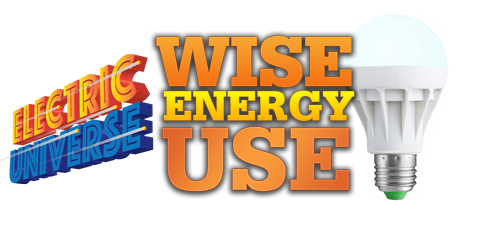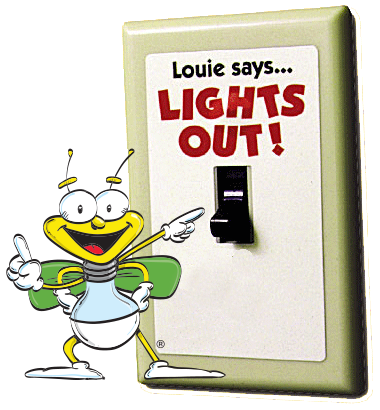
Location: Whole house
Mission: Reduce energy waste.
Turn lights off when leaving rooms.
Keep windows and exterior doors closed when the heater or air conditioner is on.
If a room is not used often in your house, close doors and vents to the room so the air conditioner and heater won’t have to work as hard to cool or heat a room that isn’t being used. This should only be done in one or two small rooms.
Replace the filter in the air conditioner/heater every month. A dirty filter lets less air through and makes the unit work harder.
Set the thermostat for 75 in the summer and 68 in the winter. Wear light clothes in summer to keep cooler; wear warmer clothes in winter so that you won’t want to turn the heater up higher.
When leaving for more than four hours, raise the thermostat 5-10 degrees in summer and lower it 5-10 degrees in winter.
For time when you’re usually out of the house at school or work, a programmable thermostat can automatically raise and lower the temperature so you won’t have to remember to do so! Timers on outdoor lighting and window unit air conditioners will automatically turn these on and off too!
In hot weather, shut curtains facing south, east and west to keep out natural solar heating. In cold weather, open the shades during the day to let in heat and natural light, but close them at night to keep out cold air.
Use compact fluorescent light bulbs (CFLs). Regular filament bulbs use more electricity and put off more heat. According to the Department of Energy, CFLs use 75% less electricity and can last 10 times as long as an old incandescent bulb.
Paint rooms lighter colors so that that more light is reflected off the walls, thereby requiring less light in the room.
Locate lamps, televisions and other appliances that produce heat away from the thermostat. When placed near a thermostat, the heat generated from these items can “trick” the thermostat into determining that the rest of the house is warmer than it really is, which results in the air conditioner cycling on more frequently than necessary.
Use energy efficient landscaping. Trees can provide shade in summer and reduce air conditioning costs. Evergreen trees around the house in winter can provide a windbreak and reduce the heating bill.

 Turn off the TV, stereo, computer, computer games and any other appliances when you’re not using them.
Turn off the TV, stereo, computer, computer games and any other appliances when you’re not using them.